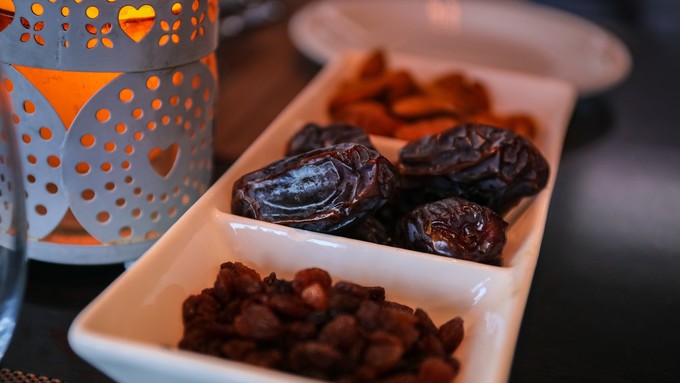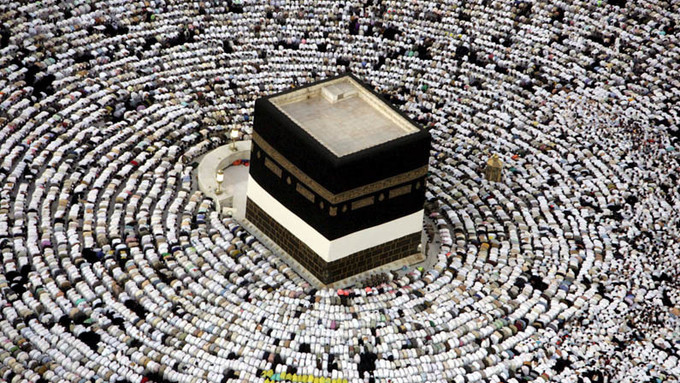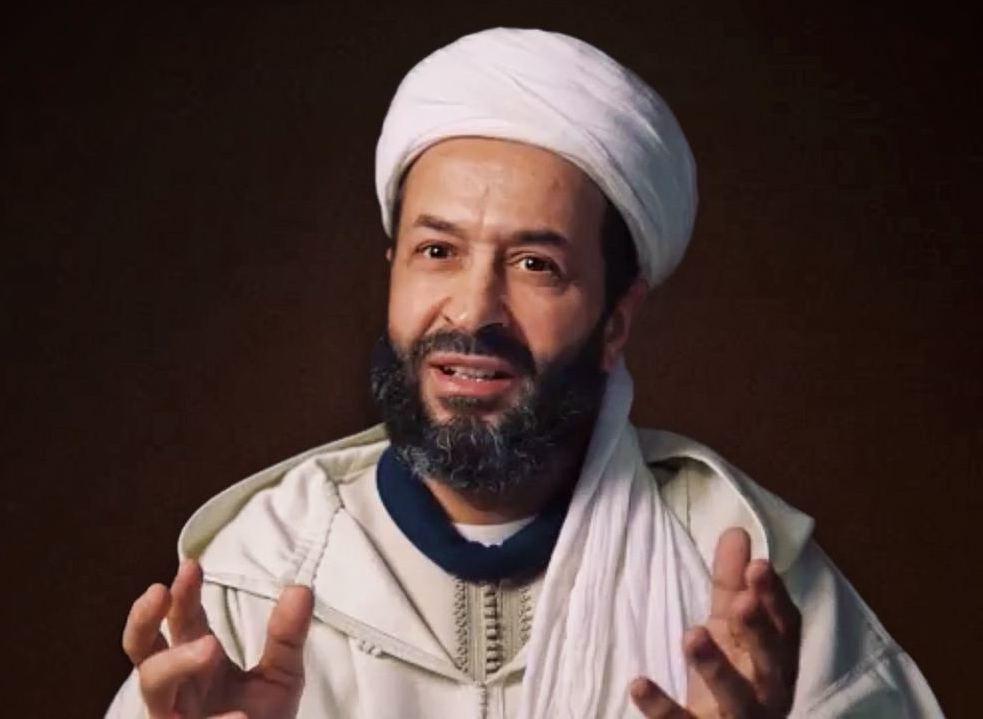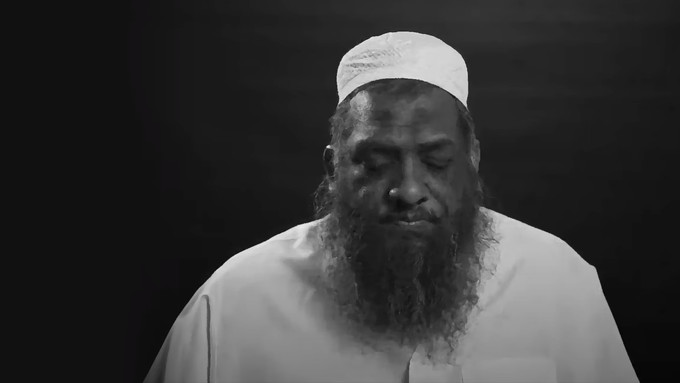The Best Provision for the Journey
[The following is a transcript of a lecture by Shaykh Mokhtar Maghraoui. It contains minor modifications from the spoken word for the purposes of readability.]
Allah subhanahu wa ta'ala tells us in Surat al-Baqarah, in the context of traveling and journeying to Hajj, how we should take sustenance with us. When people travel they take what they need for their journey of provisions and of sustenance. And He subhanahu wa ta'ala says:
“وَتَزَوَّدُوا فَإِنَّ خَيْرَ الزَّادِ التَّقْوَىٰ”
“take provision, and the best of provisions (in the journey) is taqwa (Allah-consciousness)” [2:179].
The best of provisions (zaad) means the best of things we store, save, or keep as provision or sustenance in our journey of life, for He subhanahu wa ta'ala says that in the context of a journey to Hajj. There is something very beautiful here. Allah subhanahu wa ta'ala puts this inside the concept of journey to Hajj to indicate to us that we need the provision and sustenance of taqwa in our journey to Him subhanahu wa ta'ala.
In our journey in this dunya for akhira, we need taqwa. We ought not be obsessed by provisions for dunya. And we are so obsessed. Most human beings, that's what we end up being: so obsessed with saving and provisions and being afraid to not have enough. Or afraid to die and not have enough, as though when we die we're going to take it with us. Or when we die, [to think] that we won't have enough to leave to our children and our families. We're so obsessed with that. We are restrained, jailed, and constrained by that concept, instead of preparing for this journey of life to akhira the provision of taqwa – to be Allah-conscious and mindful of Allah subhanahu wa ta'ala all the time.
Taqwa is to live our lives doing our best to be aware of Allah subhanahu wa ta'ala minute-by-minute and second-by-second. Of course, not all of us are in that state. We're improving that. But that's what we need to achieve: living in a state of mindfulness, awareness, and consciousness of Allah subhanahu wa ta'ala second-by-second. In the way we feel inside, and therefore consequently the way we behave outside. In how we speak, look, walk, and use our hands, legs, tongues, stomachs, abilities, intelligence, individuality and collectivity – we must be conscious and mindful of Allah subhanahu wa ta'ala in a state of taqwa. [That is] our zaad, our provision, the food we take with us in this dunya, my dear brothers and sisters.
[In ayah 2:212:زُيِّنَ لِلَّذِينَ كَفَرُوا الْحَيَاةُ الدُّنْيَا وَيَسْخَرُونَ مِنَ الَّذِينَ آمَنُوا وَالَّذِينَ اتَّقَوْا فَوْقَهُمْ يَوْمَ الْقِيَامَةِ وَاللَّـهُ يَرْزُقُ مَن يَشَاءُ بِغَيْرِ حِسَابٍ ], Allah subhanahu wa ta'ala then says that dunya (wealth and power) was made attractive, beautiful, and luring to the non-believers. So you find human beings so enamored, in love with, and so attached to dunya that they would do anything and everything to keep it, even if lives of entire populations, peoples, and nations are taken in pursuit of that.
That starts at the individual level. We find some of us Muslims also who have become enamored with the zeenah (external, shallow attractiveness) of dunya, though that is an attribute of those who do not have iman (true faith).
[The ayah continues to say] that on account of that, ones like that ridicule, belittle, look down upon, and debase those who have faith, are rich with iman, and live a simple life of contentment (qana'a), not a life of obsession with the elements of dunya. They act with arrogance, kibr (arrogance), and ghurur (delusion and assessing the self too highly) towards them. Many of us who are rich and powerful don't want to be with those who are not rich and powerful. We look down on them – just on account of that we have dunya, this shallow beauty and these shallow possessions! We have them and suddenly we become very special. Not even knowledge or faith is respected anymore, as long as people begin to have wealth and power.
If we are truly rich with iman, those who ridicule us on account of not having shall not hurt us. If we have iman, we won't mind. We know that they don't know. We know that we have a lot more than they do. That's if we have iman. If we don't, we're going to be lured by that, like the weak believers among Musa's people who saw Qarun parading with his power and riches [See Qur'an 28:79-80]. We'll behave and respond like that: “Oh! This is great! If only we had what he has! That man is lucky! That man is successful!” [But the true ones reply]: “Woe upon you! The reward of Allah is much greater.” It's much greater.
Allah says that those who have and are powerful ridicule those who don't have and who are weak. Yet then Allah subhanahu wa ta'ala says at the end [of ayah 2:212], it is He who provides for all:وَاللَّـهُ يَرْزُقُ مَن يَشَاءُ بِغَيْرِ حِسَابٍ . The non-believer or the believer, the good person or the bad person, all of what they have, no matter how much, it's Allah who gave it. It's Allah who gives to the rich. It's Allah who gives to the poor. To both of them, Allah gave. One is not better on account of having; Allah gives to whom He pleases. But one is deprived of faith and internal awareness of Allah while one is given faith. And what a difference it is.
We're only here for a short time – a very, very short time. It's so fast. When the time comes to die, life is going to seem so very short. Some already see it. It's so short, this life. Thus, those men and women, young or old, whom Allah subhanahu wa ta'ala graced with the awareness of akhira, He makes them aware of this fact very early on, and they live their lives as travelers whose provision is taqwa (God-consciousness). More sawm, more salah, more dhikr, more du'a, more 'ibadah, more saqadah, more sabr, more forbearance, more forgiveness, more kindness, more magnanimity, and more of the qalb (heart) being with Allah subhanahu wa ta'ala by daily, minute-by-minute, trying to be conscious of Him. May Allah subhanahu wa ta'ala grant us all that consciousness and the provision of true taqwa. Ameen.
Faith & Spirituality Related Articles

5 Practical Steps To Get You Ready for Ramadan
As Ramadan is less than a month away, we might feel we often haven't done enough to prepare for it. Here are 5 things we can do right now during Shaban to make sure that we get the most out of Ramadan. The Prophet (Peace & Blessings upon Him & His Family) supplicated,” O Allah give us the blessings of Shaban and give us the treasure of Ramadan.”

Hajj at Home: Kindling the Spirit of Arafah
Even if we are not on Hajj this year, our situation is no different. We navigate through the complexities of our daily life, immersed in the never-ending responsibilities of work and family, inundated with the intrusions of technology and social media into every minute of our lives, moving from place to place and idea to idea.

